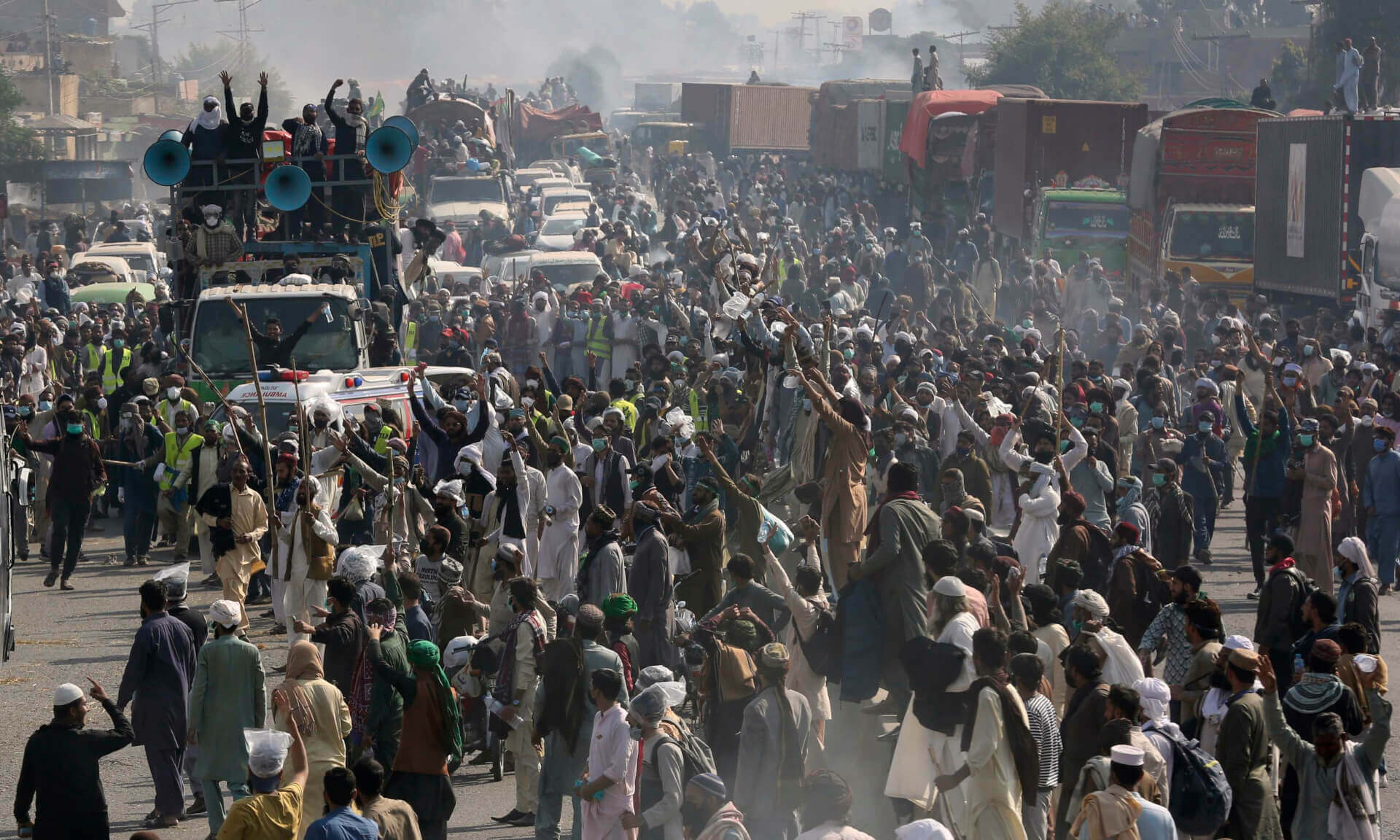The Pakistani government has withdrawn its ban on the far-right extremist group Tehreek-e-Labbaik Pakistan (TLP). This comes just days after Pakistani Foreign Minister Shah Mahmood Qureshi reached a secret compromise with TLP representative Mufti Muneebur Rehman, bringing an end to the group’s ten-day-long protest.
The decision to un-ban the group was announced through the Interior Ministry’s circulation summary. The document said that the ban was removed on the assurance that the group would refrain from organising violent protests in the future. According to Hindustan Times, the decision was approved by Pakistani Prime Minister Imran Khan.
A release by the Interior Ministry said: “The prime minister has been pleased to accord permission for submission of instant summary to the cabinet through circulation under Rule 17 (1)(b) of the Rules of Business, 1973. The approval of the cabinet is solicited to de-proscribe the TLP under Anti-Terrorism Act, 1997, on the recommendation of the Punjab government.”
Last week, the Chief Minister of the Punjab Province, Usman Buzdar, also approved the region’s home department’s summary and revoked the ban. After approving the summary, it was forwarded to the federal Interior Ministry.
As a result of the Interior Ministry’s decision, the provincial government has modified the fourth schedule, which contains a list of citizens who are monitored under the country’s anti-terrorism laws. Consequently, 48 out of 90 TLP activists have now been removed from the list. The Punjab government also announced its decision to release 100 other TLP members from various jails across the region. In addition, the group will now be allowed to participate in elections.
More importantly, the government decided to extend the immunity granted to the group’s leader, Saad Rizvi. Rizvi was pre-emptively detained by the Pakistani authorities in April to “maintain law and order” after he presented the Pakistan government with an ultimatum to expel the French ambassador to the country. Right after his arrest, the group was declared a “proscribed organisation” under the country’s anti-terror laws.
The TLP launched protests on October 22, participating in a march from Lahore to Islamabad, with around 8,000 activists blocking roads and firing projectiles. Their key demand was Rizvi’s release. As a result of the clashes between the activists and the security forces, at least eight policemen and 11 members of the TLP died. However, the protests were called off following the agreement between the government and the group.
Over the years, the TLP’s protests have frequently disturbed peace, public health, and economic activity. For instance, following Rizvi’s arrest in October 2020, the group organised nationwide protests that not only brought several cities to a standstill but also endangered authorities’ efforts to contain the COVID-19 pandemic. According to Hasaan Khawar, the special assistant to the chief minister of information, since 2017, TLP-led protests have resulted in economic losses of over Rs. 35 billion ($467 million). In fact, the current protest, he said, has already caused economic damages worth Rs. 4 billion ($53.4 million). In this light, a forced truce with the TLP brings much-needed relief to the already cash-strapped country.

